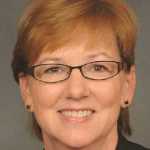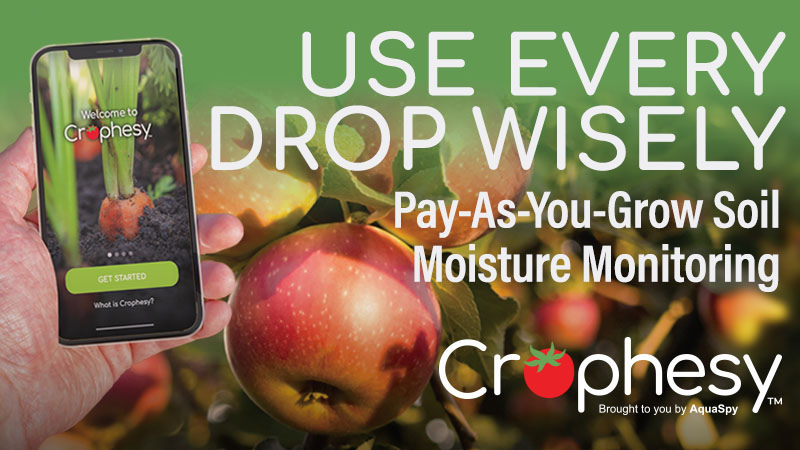Current Trends Top Conversation At Florida Fruit & Vegetable Association Convention
More than 420 producers, allied business partners, and other agriculture leaders gathered for FFVA’s 72nd Annual Convention last week to hear the latest on the issues, do business with sponsors, and catch up with industry friends. The packed agenda served up a powerful lineup of speakers, topics, and opportunities for discussion of issues that affect how growers do business. Here are some highlights:

Photo by Frank Giles
Pest Potential
Controlling agricultural diseases and pests – already a major challenge in Florida – is likely to become even more difficult in the next few years, Agriculture Commissioner Adam Putnam told attendees during his opening State of the Industry remarks. “We now have the largest Oriental fruit fly outbreak ever in the Homestead area,” he said. “In Hialeah, we have people mopping up an infestation of giant African land snails, and the area’s avocado growers are fighting laurel wilt disease. That’s three major problems in one county at the same time.”
Putnam warned that outbreaks could intensify if the massive cargo ships coming through the Panama Canal carry pests from Asia when they dock in Florida ports. “The likely start of ferry service between Cuba and Florida also will expose our state to new agricultural hazards,” he added.
Putnam urged federal regulators to pay more attention addressing these risks at a time when global cargo and passenger traffic is increasing. “We need better deployment of technology to address the risk pathway and keep these problems out of our back yard,” he said.
Presidential Predictions – Or Not
Political commentator Tucker Carlson cut through the presidential candidate clutter in his keynote address. Don’t expect Hillary Clinton or Jeb Bush to be their parties’ nominees for president in 2016, the co-host of “Fox and Friends Weekend” predicted. That’s because Democratic and Republican voters are fed up with establishment candidates.
“Both parties are in turmoil, and no one knows what will happen,” he said. “Things are changing quickly on a demographic level, and the professional predictors are making it up as they go along.”
Carlson skewered candidates of both parties. Donald Trump is “emotionally incontinent,” and vulnerable to being baited by other Republican candidates, he said. On the other hand, he added, Bush is not perceived as a strong leader. Clinton faces ongoing problems with the turmoil over her eMail account and an FBI investigation. “She has never been popular with the grassroots Democrats,” Carlson said. “But most importantly, she doesn’t match where the party is right now.”
However, it’s a mistake to focus solely on the candidates, Carlson said. “It’s not going to be the individual but the mood of the country when the election takes place,” he said. “Now we are entering a moment of economic populism. Voters want a candidate who is authentic and cares about their issues. It’s the perfect scenario for an insurgent candidate. So be prepared, because anything can happen.”
Issues Forums Tackle Tough Topics
At the Issues Forum “Food Crop Industries and GMO: Talking to a Concerned Public,” renown researcher Dr. Kevin Folta emphasized the importance of “sharing good science” and getting farmers and researchers to speak out on food-related issues rather than letting non-experts with personal opinions take over the battleground. Folta is professor and chairman of the University of Florida’s Horticulture Sciences Department.
“We live in a society of opinions,” Folta said. “That means we have to learn how to tell our stories and communicate with sensitivity and tact to change people’s hearts and minds. We are the ones who can change this dialogue.”
Combatting the “fear factor” with statistics and numbers won’t work. “Instead, we need to share our stories with them,” he said. “We should talk about our values, such as our concerns for keeping our children healthy and implementing environmentally sound farming practices. Like other consumers, we like a variety of healthy foods in our diet, and want to be sure that the needy families in our communities also have access to good food.”
In “The Global Market: What’s in It for You,” Dan Sleep, chief of the Bureau of Strategic Development at Florida Department of Agriculture and Consumer Services, said global markets from Canada to Korea and Scandinavia to South America offer new opportunities for Florida’s producers of specialty crops. The bureau has steadily increased the presence of Florida grapefruit, blueberries, wine, and other products in the Americas, Asia, and Europe. “We are now in 26 countries worldwide and will hit 5,000 stores this year,” Sleep said. “You make my job easy by producing the finest products in the world and overcoming the logistical issues in serving global markets.”
A panel of industry experts discussed key water and land-use policy issues in the forum “Addressing Critical Water Challenges.” Terry Cole, shareholder at Gunster law firm, led the discussion with attorney Frank Matthews of Hopping Green & Sams in Tallahassee; Greg DeAngelo, deputy director of the Division of Environmental Assessment and Restoration, Florida Department of Environmental Protection; and attorney Greg Munson, a partner at Gunster and former deputy DEP secretary.
To protect access to adequate water supplies, Florida producers need effective advocates in Tallahassee who understand agriculture’s essential contribution to the state’s economy, Matthews said. “Last year was supposed to be the year of water in the Florida Legislature, but the battle over health care got in the way. While that was disappointing, don’t lose hope. Measures to protect our water supply will be introduced again this year.”










